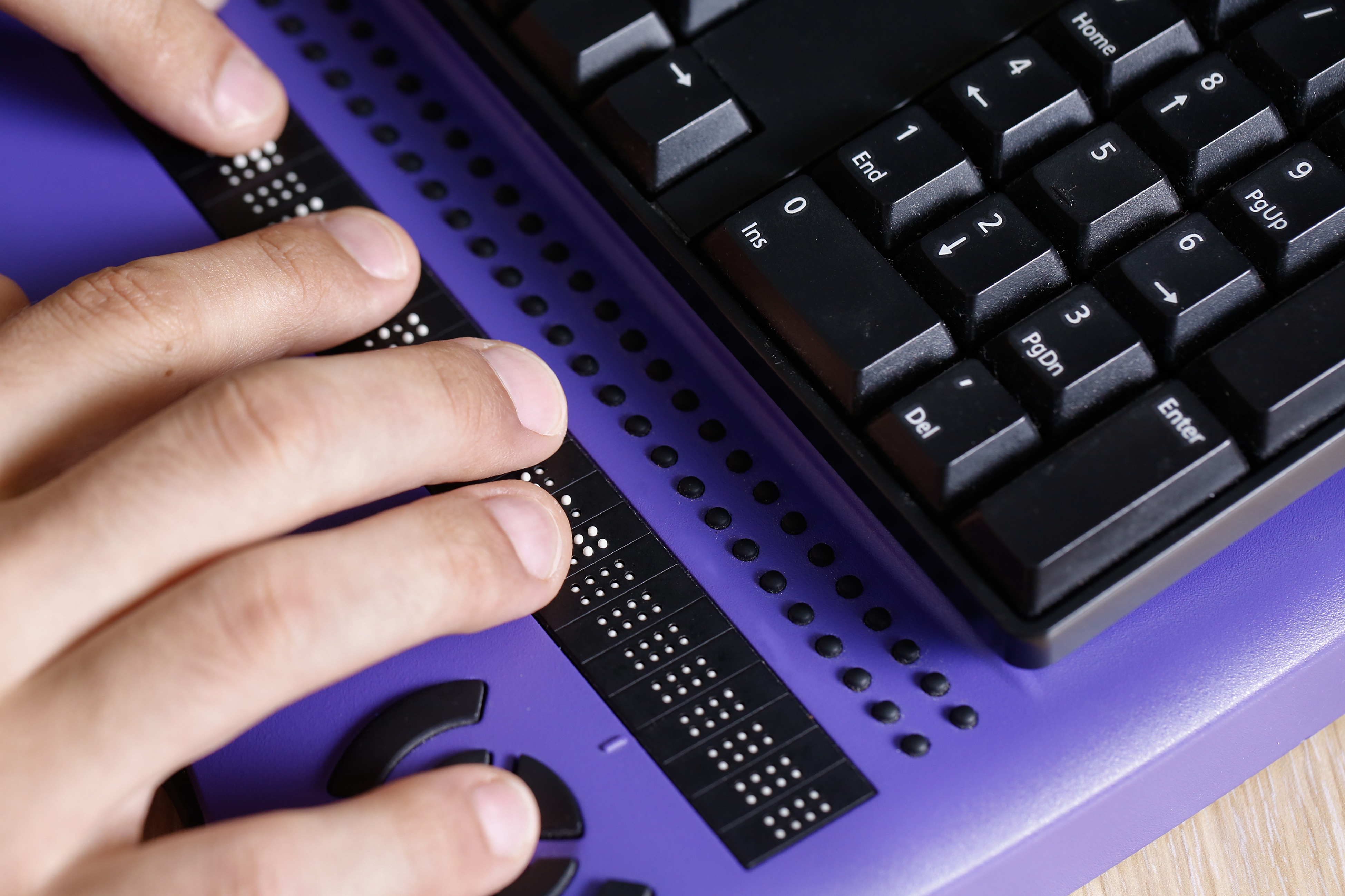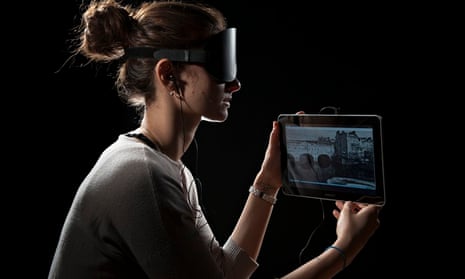AI-Powered Visual Aids: Enhancing Independence for Blind Users
AI-Powered Visual Aids: Enhancing Independence for Blind Users
Blog Article
Empowering Independence With Assistive Modern Technology for the Blind
The integration of assistive technology into the lives of people with aesthetic problems stands for a considerable development in promoting independence and self-sufficiency. From innovative screen readers to sophisticated clever walking canes, these devices not only enhance daily navigating and interaction however likewise empower users to involve meaningfully in numerous elements of life. As we check out the myriad advantages and real-world applications of these technologies, it becomes crucial to examine the hidden factors that add to their effectiveness and the possibility for future growths in this crucial field.
Review of Assistive Modern Technology

The development of assistive modern technology is based in principles of inclusivity and empowerment. Developments in software, equipment, and sensory enhancements provide customers with choices tailored to their specific demands. From display readers that convert message to speech, to responsive gadgets that convey details with touch, these devices transform the means people engage with their environments.
In enhancement to functional applications, assistive innovation promotes greater social addition and participation in numerous industries, consisting of education and employment (Wearable technology for low vision). As research and growth continue to advance, the potential for assistive modern technology to even more boost the lives of visually impaired people stays encouraging, leading the way for a more equitable society where every person can thrive
Types of Assistive Tools
A selection of assistive devices have actually emerged to sustain individuals with visual disabilities, each made to satisfy details demands and enhance day-to-day performance. These tools range from low-tech options to high-tech advancements, supplying varied alternatives for individuals.
Low-tech tools include magnifiers and large-print materials that help in analysis and writing. Braille tools, such as Braille slates and styluses, enable tactile analysis and interaction. Orientation and movement aids, like white walking canes, aid customers browse their setting safely.
On the higher end of the range, digital magnification systems and screen visitors provide significant assistance. Electronic magnifiers allow individuals to expand message and pictures on displays, while display visitors convert digital material into synthesized speech, facilitating access to information on computers and smartphones.
Mobile phone applications also play a vital duty, giving attributes like text acknowledgment and navigating support. Wearable innovation, such as wise glasses furnished with enhanced reality, is emerging as a promising device to improve situational awareness.
Advantages of Assistive Technology
The integration of assistive innovation significantly boosts the lifestyle for people with visual impairments. These technologies encourage individuals by advertising self-reliance, enabling them to navigate their settings a lot more efficiently and perform daily jobs with higher ease. For circumstances, display readers and magnifying software program allow people to gain access to digital information, cultivating instructional and professional opportunities that may have formerly been out of reach.
Additionally, assistive tools such as smart walking canes and GPS applications supply real-time navigation help, enhancing wheelchair and safety. This boosted freedom not just improves self-worth but also encourages social interaction, enabling customers to participate more completely in their neighborhoods.
Assistive modern technology also helps with communication, assisting individuals link with others via voice acknowledgment and text-to-speech applications. This capacity is essential for maintaining relationships and accessing vital info.
In addition, the modification alternatives readily available with several assistive technologies ensure that check my source users can tailor spectacles shop near me devices to their specific needs, further enhancing use and performance. On the whole, the advantages of assistive innovation for individuals with visual problems are extensive, advertising an extra comprehensive society where every person can seek their objectives and ambitions.
Instance Studies and Success Stories
Highlighting the transformative influence of assistive technology, countless study illustrate exactly how individuals with visual problems have effectively incorporated these tools into their lives. One compelling instance entails a college pupil who utilized screen analysis software to browse online resources and scholastic products successfully. This technology not only facilitated her education and learning however additionally enhanced her self-confidence in taking part in conversations and team projects.
An additional situation research features a professional that employs a mobile phone application created for navigation and things acknowledgment. By using this application, he has reclaimed autonomy in both his individual and work settings, allowing him to commute separately and involve with associates much more efficiently.
Additionally, a senior citizen shared her experience with braille e-readers, which allowed her to access a substantial array of literary works and remain linked with her neighborhood with publication clubs.
These success tales emphasize the crucial role of assistive innovation in promoting self-reliance, enhancing high quality of life, and promoting social integration for individuals with aesthetic problems (Screen readers for the blind). By accepting these cutting-edge devices, customers can get over obstacles and confiscate possibilities that add to their expert and individual gratification

Future Fads in Assistive Technology
Technology in assistive technology is positioned to redefine the landscape of support for individuals with visual impairments. Emerging fads emphasize the combination of expert system (AI) and artificial intelligence, which enhance the performance of tools that help with navigating and details ease of access. For example, AI-driven applications are currently capable of translating aesthetic information in real-time, enabling individuals to involve with their atmosphere much more individually.
Additionally, the development of wearable modern technology is advancing swiftly. Smart glasses furnished with increased fact (AR) can supply audio summaries of surroundings, transforming how customers connect with public rooms. These gadgets not just promote autonomy yet additionally foster social addition.
Furthermore, the Web of Things (IoT) is making homes smarter, allowing for smooth connection between assistive devices and everyday devices. This connection equips individuals by allowing voice-activated controls and automated reactions customized to private requirements.
Verdict
Finally, assistive innovation plays a crucial role in empowering people with visual problems by boosting their independence and interaction with their environments. The diverse variety of gadgets and applications readily available not only facilitates navigating and communication yet likewise advertises social combination and possibilities for expert and individual growth. As advancements proceed in this field, the potential for improving the quality of life for those with aesthetic impairments will certainly increase, promoting better autonomy and empowerment.

Report this page